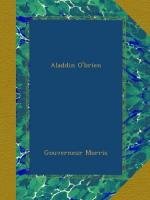stood farther down in the alphabet than T. But the
elements of knowledge kept dropping in, at first on
perfunctory calls, visitors that disappeared when
you turned to speak with them, but that later came
to stay. The four young men were like children
with a “roll-the-seven-number-eight-shot-into-the-middle”
puzzle. They could make a great rattling with
the shot, and control their tempers; that was about
all. Later they were to form units in the most
efficient and intelligent large body of men that the
world ever saw, with the possible exception of the
armies it was to be pitted against; but those, it
must be owned, were usually smaller, though, in the
ability of their commanders to form concentration,
often of three times the size. They learned
that it is cheaper to let a company sleep in tents
upon hard ground of a rainy night than to lodge them
in a neighboring hotel at one’s own expense,
and that going the rounds in pitch-darkness grows
less thrilling in exact ratio to the number of times
you do it, and finally, even in sight of the enemy’s
lines, becomes as boring as waltzing with a girl you
don’t like. They began to learn that cleanliness
is next to godliness only in times of peace, and that
food is the one god, and the stomach his only prophet.
They learned that the most difficult of all duties
is to keep the face straight when the horse of a brother
officer who mounts for the first time is surprised
to vehemence by its first experience with a brass
band.
Aladdin was absolutely equal to the occasion, and
developed an astonishing talent for play-acting, and,
it is to be feared, strutted a little, both in the
bosom of his soul and on the parade-ground.
It was only when he looked at two of the “tall
men on the right,” Hamilton and Hannibal St.
John, who had chosen humble parts that they might
serve under their brother, that he felt properly small
and resented himself. Sometimes, too, he searched
his past life and could find in it only one brave
deed, his swim down the river, and he wondered with
an awful wonder what he would do when the firing began.
He need not have troubled: he was of too curious
and inquiring a disposition to be afraid of most things.
And he was yet to see proved on many Southern fields
that a coward is, if anything, a rarer bird than a
white quail. Only once in action did Aladdin
see a man really show the white feather. The
man had gone into the army from a grocery-store, and
was a very thin, small specimen with a very big, bulbous
head; and, like many others of his class, proved to
be a perfect fire-eater in battle, and a regular buzzard
to escape fever and find food. But during the
famous seven days before Richmond a retreat was ordered
of a part of the line which the Buzzard helped compose,
and he was confronted by the necessity, for his friends
were hastening him from behind, of crossing a gully
by means of a somewhat slender fallen tree.
It was then that Aladdin saw him show fear.




